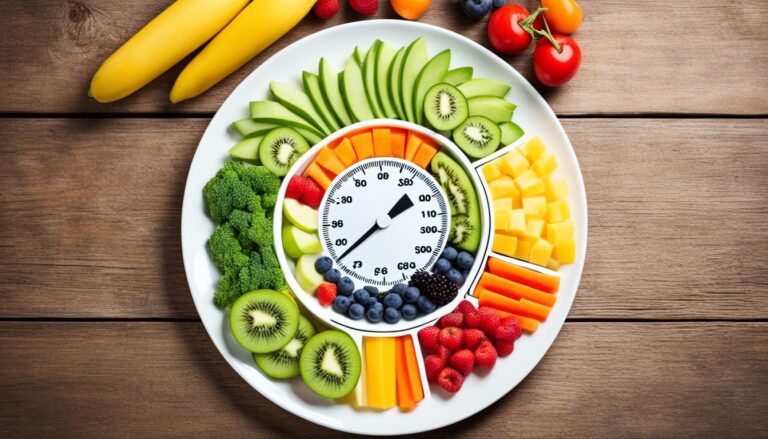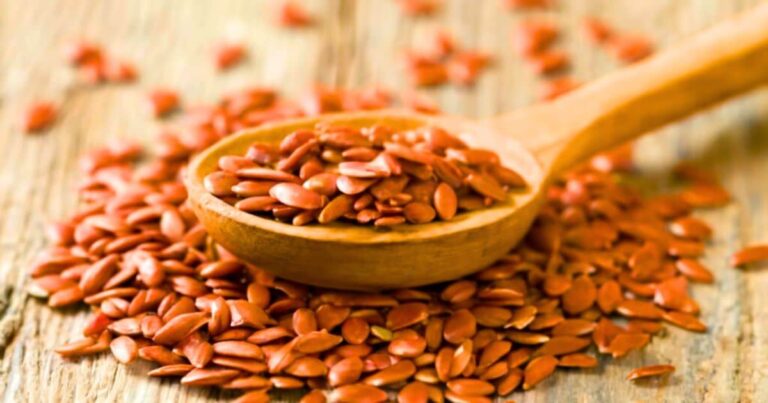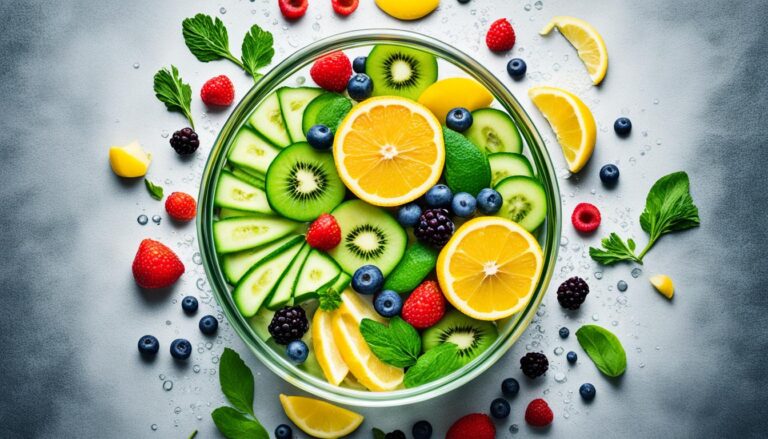Want a sharper mind and better memory? Check out what you eat! The food we eat greatly affects our thinking skills. It helps with focus, concentration, and even fights mental decline as we age. But what foods are the best for boosting your brain?
Key Takeaways
- Certain nutrients like omega-3s, antioxidants, and vitamins are essential for optimal brain function and memory.
- Fatty fish, berries, leafy greens, nuts, and dark chocolate are among the top brain-friendly foods.
- A balanced diet rich in these “memory-boosting” ingredients can help prevent cognitive decline and neurodegenerative diseases.
- Proactive lifestyle habits, including stress management and mental stimulation, work hand-in-hand with a brain-healthy diet.
- Obtaining nutrients from whole foods is preferable to relying on supplements for brain health.
Introduction to Brain-Boosting Foods
The Importance of a Healthy Diet for Brain Function
A healthy diet is key for keeping your brain in top shape. The brain uses a lot of energy and nutrients. So, eating the right brain-boosting superfoods is vital. Foods rich in omega-3s, antioxidants, vitamins, and minerals help brain cells talk to each other. They also protect against inflammation and stress, and boost cognitive-enhancing nutrition.
Eating a mix of dietary factors for memory and brain-boosting foods can make your brain work better. It can also slow down mental aging and might lower the risk of diseases that affect the brain. The brain, though small, uses a lot of energy, making diet and brain health very important.
- Oily fish like salmon, trout, and sardines are full of omega-3 fatty acids. These fats are 50% of brain fat and help slow down mental aging.
- Berries such as strawberries, blueberries, and blackberries have antioxidants. These improve brain cell communication, help with learning, and prevent mental decline.
- Whole grains with a low glycemic index keep blood sugar levels steady. This is good for your brain’s activity.
- Green leafy veggies like kale and spinach are packed with lutein and folate. These reduce brain inflammation and fight Alzheimer’s disease.
- Nuts and seeds, especially walnuts, are rich in omega-3 fatty acids and Vitamin E. Eating these can lower the risk of forgetting things as you get older.
Adding these brain-boosting foods to your meals can help your brain work better. It can improve memory and might even slow down mental aging.
Fatty Fish: A Rich Source of Omega-3s
Fatty fish are amazing for brain health. They are full of omega-3 fatty acids, especially DHA. This is key for keeping the brain working well.
Omega-3s are crucial for brain cells. They help with how brain cells talk to each other and work better. This is important for thinking and learning.
Eating foods rich in omega-3 like salmon, trout, albacore tuna, herring, and sardines can really help. It can make memory better, slow down brain aging, and help people with Alzheimer’s disease. The benefits of omega-3 fatty acids, DHA-rich foods, brain-boosting seafood, and oily fish for memory are clear.

Adding omega-3 fatty acids to your meals is easy and effective. It’s a great way to keep your brain healthy for the long run. You can grill, bake, or add fatty fish to many dishes. This makes them a tasty choice for boosting your memory and brain power.
Berries: Antioxidant Powerhouses
Berries, especially blueberries and dark ones, are full of antioxidants. These protect the brain from damage and inflammation. Antioxidant-rich fruits like berries have compounds that help brain cells talk better and may slow down brain aging. Eating dark berries for cognitive function often can make memory, learning, and thinking better. Berries are truly a “superfood” for the brain.
The Benefits of Blueberries and Other Dark Berries
Blueberry brain benefits are known well. These small fruits are full of antioxidants that help the brain work better and fight brain damage. Research shows that blueberries can make memory, focus, and mood better. But it’s not just blueberries. Blackberries, raspberries, and other dark berries also have compounds that boost brain function and fight mental decline as we age.
“Berries, such as blueberries, strawberries, raspberries, and blackberries, contain flavonoids that can improve cognitive skills, including memory, learning, and decision making.”
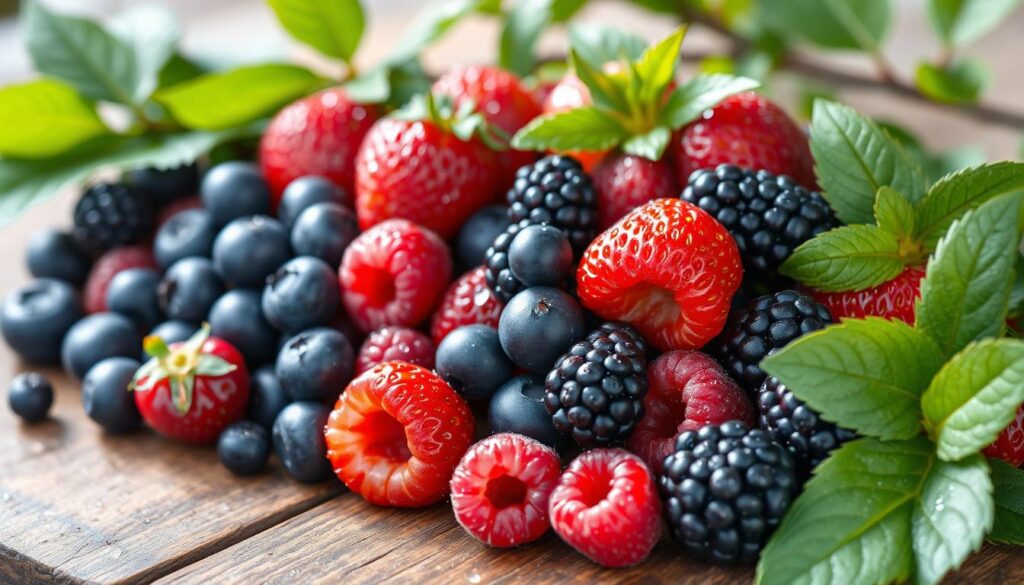
Adding more antioxidant-rich fruits like berries to your meals is easy and tasty. It’s a great way to support brain health and keep your mind sharp. Whether you like blueberries, blackberries, or a mix, these fruits are essential for anyone wanting to feed their brain and improve their thinking skills.
What is the best food for memory?
There isn’t just one “best” food for memory, but eating a balanced diet with top memory-boosting foods helps. Foods like fatty fish, berries, leafy greens, nuts, seeds, turmeric, and dark chocolate are great. They have omega-3s, antioxidants, vitamins, and minerals that help the brain work better.
Adding these most effective dietary strategies for memory to your meals can boost memory and focus. Eating oily fish often can help prevent brain loss as we get older. Blueberries are also good for memory because of their anthocyanins.
- Regularly eating a small handful of walnuts can improve thinking skills in older people.
- Whole eggs are full of choline, which is key for brain tasks and making new memories.
- Pumpkin seeds have zinc and B vitamins that help keep the brain and memory sharp as we age.
Eating a brain-healthy diet with these top memory-boosting foods can help keep your brain in good shape. It might even make your memory and brain function better.

“Proper nutrition is essential for optimal brain health and cognitive performance. Incorporating a diverse array of nutrient-dense, memory-enhancing foods can have a profound impact on one’s ability to focus, learn, and remember.”
Nuts and Seeds: A Nutritional Boost
Nuts and seeds are great for your brain health. They are full of healthy fats, protein, vitamins, and minerals. Eating nuts for brain health and seed-based brain foods often can improve your thinking skills. They are key to a diet that keeps your brain healthy.
The nut and seed nutrients for cognition include omega-3 fatty acids, vitamin E, antioxidants, and anti-inflammatory compounds. These nutrients help protect the brain, improve memory and focus, and may lower the risk of diseases like Alzheimer’s. Walnuts are a top choice for brain health because they’re full of anti-inflammatory omega-3s.
- People eating a Mediterranean diet with extra nuts had a 20 to 30% lower risk of depression over 5 ½ years.
- Nuts are packed with magnesium, fiber, omega-3 fatty acids, and antioxidants. These can lower inflammation linked to Alzheimer’s, heart disease, and diabetes.
- Adding walnuts to your diet can make your thinking and memory better, as shown in the PREDIMED studies in Spain.
- Pistachios give you carotenoids like lutein and zeaxanthin. These may improve blood flow to the brain and lower the risk of eye diseases like macular degeneration.
Adding nuts for brain health and seed-based brain foods to your diet can give your brain what it needs to work well. These snacks can help improve memory, focus, and reduce the risk of getting older and losing brain function. They are easy and tasty ways to support your brain health.

“Nuts and seeds are a nutritional powerhouse, providing a wealth of brain-boosting benefits that can help us stay sharp and focused throughout our lives.”
Leafy Greens: Packed with Brain-Friendly Vitamins
Kale, spinach, and broccoli are great for your brain health. They are full of vitamins that help your brain work well and remember things.
The Benefits of Kale, Spinach, and Broccoli
Leafy greens have lots of vitamins E and K, and folate. These vitamins are key for a sharp mind. Vitamin E protects brain cells, vitamin K helps brain fats, and folate makes neurotransmitters that help with memory and mood.
Broccoli also has sulforaphane, which fights inflammation and protects the brain. Eating these greens often can boost your brain health and thinking skills.
- Kale is full of vitamins E and K, and folate, important for brain tasks.
- Spinach has antioxidants and vitamins that shield the brain from getting older.
- Broccoli has sulforaphane, which fights inflammation and protects the brain.
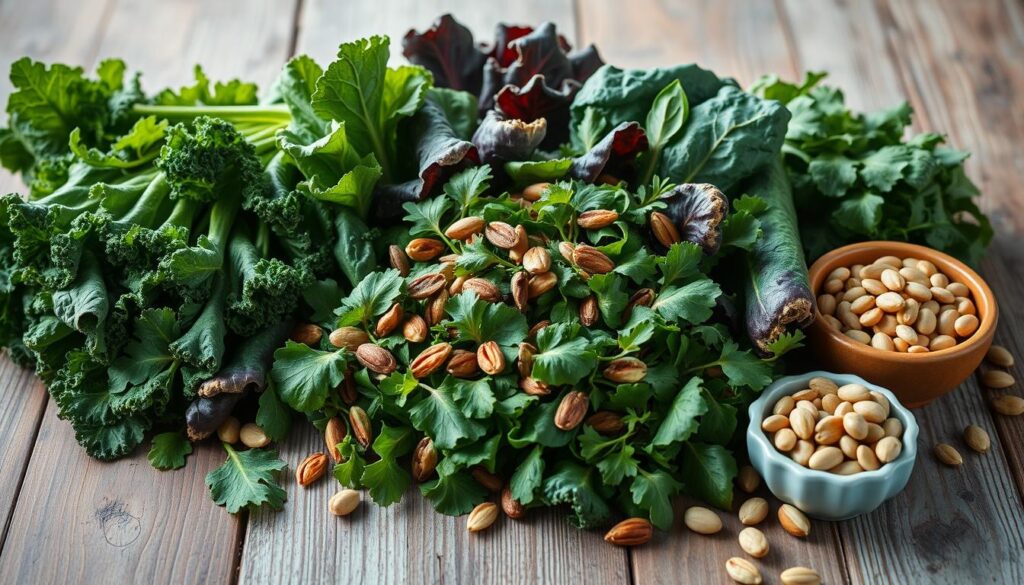
Experts say to eat 2-3 cups of dark leafy greens like kale, spinach, and broccoli daily. This helps get the most brain benefits from these veggies.
Turmeric: A Powerful Anti-Inflammatory Spice
Turmeric is a bright yellow spice often found in curry dishes. It has a key compound called curcumin that’s great for the brain. Curcumin is an antioxidant and anti-inflammatory that can get into the brain.
Studies show that curcumin can improve memory and cognitive function. It can also ease symptoms of depression and anxiety. Plus, it might protect against neurodegenerative diseases like Alzheimer’s. Even though turmeric only has 1-6% curcumin by weight, eating it can still help your brain.
To get the most curcumin, eat turmeric with black pepper. This can boost curcumin absorption by up to 2,000%. Also, having turmeric with a high-fat meal helps with absorption.
“Turmeric has been used for medicinal purposes for nearly 4,000 years, and over 1 billion people use it every day.”
High doses of curcumin, over 1 gram a day, are needed for big anti-inflammatory effects. But, eating turmeric regularly still offers great benefits for your brain and health. Adding this spice to your daily meals can unlock the curcumin brain benefits, anti-inflammatory properties, and potential for improved memory and mood.
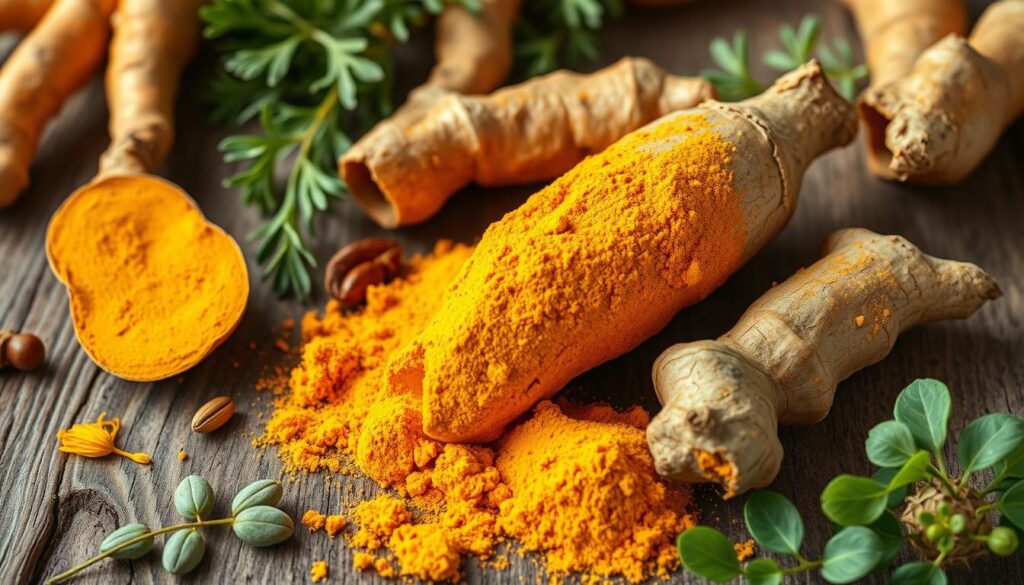
Chocolate: A Treat for the Brain
Dark chocolate is more than just a sweet treat. It’s a superfood for your brain. The high cocoa content in dark chocolate boosts your brain’s function. Flavonoids in it help improve memory, mood, and protect against brain aging.
The Benefits of Dark Chocolate
Flavonoids are powerful antioxidants that help your brain stay healthy. They reduce inflammation and support blood flow to the brain. This is key for good brain function. Dark chocolate also has caffeine and theobromine, which can make you more focused and alert.
Enjoying a little high-quality dark chocolate can be good for your brain. It tastes great and can help with memory, mood, and brain health.
“Dark chocolate is not only a delicious indulgence, but it’s also a brain-boosting superfood packed with flavonoids that can enhance cognitive function.”
Next time you want a sweet snack, try a few squares of dark chocolate. It’s good for your brain and tastes great. Your mind will be grateful!
Conclusion
Eating foods rich in nutrients is key to keeping your brain sharp and healthy. Foods like fatty fish, berries, leafy greens, nuts, seeds, turmeric, and dark chocolate are great for your brain. They give your brain the vitamins, minerals, antioxidants, and healthy fats it needs.
These foods help improve memory, focus, and concentration. They also protect against age-related brain decline and may lower the risk of neurodegenerative diseases.
Combining a balanced diet with exercise, good sleep, and mental activities is powerful for your brain. So, let’s celebrate a brain-healthy future with a glass of dark chocolate milk!
Small changes can make a big difference. Add these tasty, nutritious foods to your daily meals. You’ll soon see your mind getting sharper and more resilient.

